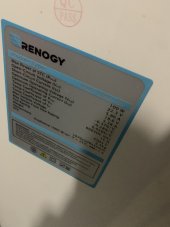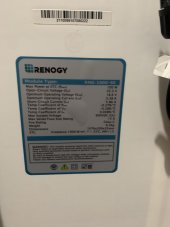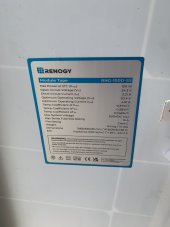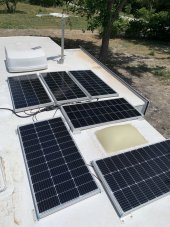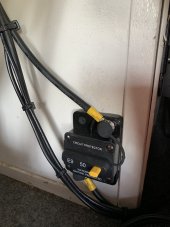vashkoproimage
New Member
- Joined
- Apr 6, 2022
- Messages
- 57
Im running 6 - 100 watts of panels on my rv. I’m running 10 gauge wire 20 feet for positive and 20 feet for negative. I have them wire in 3 sets of 2 panels series and parallel. Is the 10 gauge wire okay to use?
Also I might be going little over 15 amps though the 10 gauge wire at around 36 volts. I know that if it’s under 15 amps Max series fuse rating I don’t need to use fuses at panels. If I’m a little over is that fine? I will post pictures of specs of the solar panels. Each specs sticker is running in pairs.
Renogy 40 amp charge controller
6- 100 watt Renogy panels
Also I might be going little over 15 amps though the 10 gauge wire at around 36 volts. I know that if it’s under 15 amps Max series fuse rating I don’t need to use fuses at panels. If I’m a little over is that fine? I will post pictures of specs of the solar panels. Each specs sticker is running in pairs.
Renogy 40 amp charge controller
6- 100 watt Renogy panels



